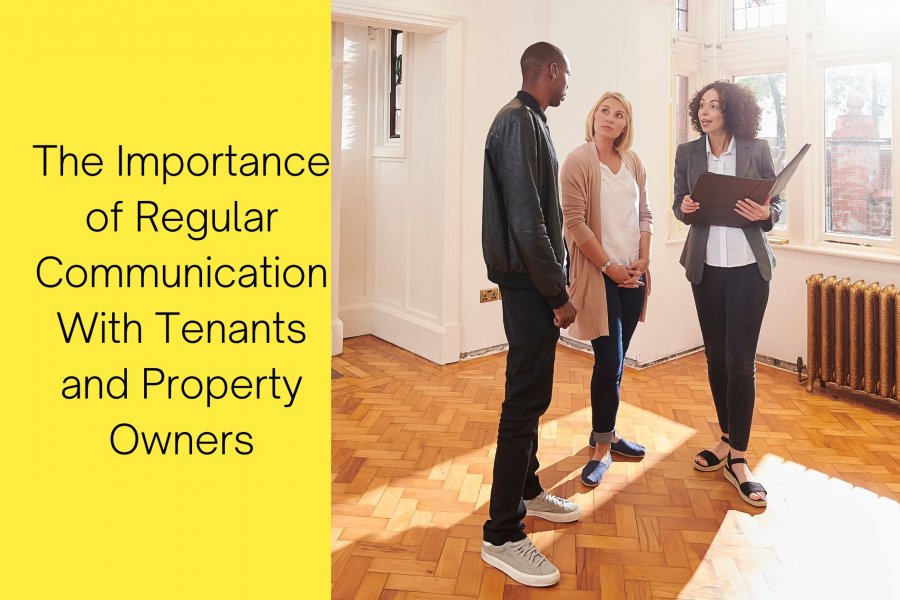
Key Takeaways
- Trust Drives Retention and Cooperation – Tenants who feel respected and informed are more likely to renew leases, follow rules, pay on time, and promptly report issues, saving landlords money on turnover and costly repairs.
- Clarity and Consistency Prevent Conflict – Setting clear expectations, providing accessible information, and sending timely updates reduce misunderstandings, reinforce professionalism, and create a smoother landlord-tenant relationship.
- Communication Tools Strengthen Efficiency and Reliability – Leveraging technology for reminders, portals, and feedback channels streamlines operations while maintaining two-way dialogue, leading to happier tenants and stronger property performance.
Trust plays a vital role in real estate, especially in the landlord-tenant relationship. A tenant who feels respected and informed is not only more satisfied but also more likely to stay long-term and care for your property. For landlords, that translates into fewer vacancies, lower turnover costs, and more predictable income.
Learn how we can help you maximize your home’s potential.
Effective property management is not just about collecting rent or handling repairs. It’s about creating an environment where trust and communication form the foundation. Done right, this approach transforms what could be a transactional relationship into a professional partnership that benefits both sides.
We at Mark Thomas Properties PM will strategies that lead to better communication between landlords and tenants!
Why Trust Pays Off for Landlords
Landlords are in the service business. And like any service, the client experience determines success.

Building credibility with tenants leads to:
- Lower Conflict Levels - When communication is open, small issues are flagged before they snowball into expensive disputes.
- Higher Retention - A tenant who feels valued is far more likely to renew their lease. Fewer turnovers mean less money spent advertising, screening, and prepping a unit.
- Better Cooperation - Tenants who trust their residential landlord are more inclined to follow rules, pay on time, and be flexible when minor problems arise.
- Faster Problem-Solving - A trusted relationship encourages renters to report maintenance concerns promptly, preventing minor issues from becoming budget-draining repairs.
Steps to Improve Communication
Here are some steps landlords can take to improve communication with tenants:
Get to Know Your Tenants
Every tenant has different habits, concerns, and communication styles. Successful landlords take time to:
- Ask About Communication Preferences - Some renters like texts, others prefer email, while some want a phone call. Meeting tenants where they are avoids miscommunication.
- Gather Feedback - A short digital survey once or twice a year shows you care about their experience. Tenants who feel heard tend to stick around.
- Follow Up - After repairs or inspections, send a quick message to make sure they’re satisfied with the work. This small courtesy reinforces professionalism and attentiveness.
Maintain Consistent Updates
No tenant likes surprises. That’s why regular updates matter. Inform residents about upcoming inspections, scheduled maintenance work, and renewal timelines and rent adjustments

Consistency doesn’t mean over-communication but it does require timely, relevant updates delivered in a tenant’s preferred format. This shows respect for their time and reinforces the idea that you view them as partners, not just paychecks.
Establish Clear Standards
To build trust and establish clear standards with tenants:
- Be Upfront About Rules - Provide a welcome packet or digital handbook outlining policies on rent due dates, quiet hours, pets, and maintenance requests.
- Share Expectations Early - Let tenants know what you’re responsible for, and what you expect from them.
- Keep Information Accessible - Whether through a printed guide or an online portal, tenants should always know where to find the details they need.
By starting with transparency, you establish a professional tone that makes tenants comfortable asking questions and confident that rules are applied fairly.
Learn how we can help you.
Make Space for Two-Way Dialogue
Strong communication isn’t a broadcast, it’s a conversation. Encourage tenants to share feedback, concerns, or ideas.
- Offer Multiple Feedback Channels - Surveys, digital comment forms, or casual in-person check-ins create opportunities for tenants to speak up.
- Respond Quickly - Even if you don’t have an immediate solution, acknowledging receipt within 24 hours builds credibility. It signals: “I heard you, and I’m on it.”
This responsiveness prevents frustration and strengthens your reputation as a reliable landlord.
Leverage Technology
Automation and digital tools can make communication seamless. Rent reminders, policy updates, or maintenance confirmations can be scheduled and delivered without constant manual effort.

A centralized platform or tenant portal simplifies everything. By streamlining routine communication, you free up time to focus on higher-level issues while still keeping tenants informed.
Prepare Tenants for Emergencies
Routine communication is one thing; emergency communication is another. Tenants should know what to do in the event of an emergency before they happen. Provide a simple emergency guide covering how to report gas leaks, fires, or floods, who to call for immediate assistance, and safety procedures specific to your property.
Making this available in a portal, in print, or as part of the onboarding packet builds trust and reduces panic when crises strike.
Onboard with Care
The first impression sets the tone. A sloppy onboarding process creates doubt, whereas a smooth one instills confidence. Your onboarding checklist should include:
- A welcome packet with rules, contacts, and maintenance procedures.
- Information on trash pickup, parking, and neighborhood services.
- Documentation of the property’s condition at move-in.
Onboarding helps send a signal of professionalism and sets the standard for what North Carolina tenants can expect throughout their stay.
Why Communication Makes or Breaks Property Management
Property ownership comes with endless moving parts. Without clear systems, it’s easy to get overwhelmed. Misunderstandings compound, tenants grow frustrated, and landlord-tenant relationships fray.

But when communication is prioritized, property owners benefit from:
- Happier tenants who are more cooperative.
- Faster resolutions to maintenance issues.
- Higher renewal rates, reducing costly turnover.
- Lower legal risk, since transparency reduces grounds for disputes.
In effect, communication is not just a skill, it’s a shield that protects your time, your property, and your profitability.
Bottom Line
Trust and communication are pillars of property management. Simple practices like listening, transparency, and responsiveness lower costs, ease operations, and strengthen your rental business by building lasting credibility.
Want smoother tenant communication and stronger ties? We provide tools and expertise to cut stress, keep tenants, and grow income. Contact our property management company today!
